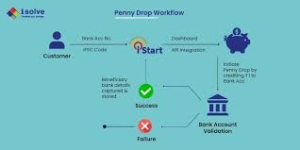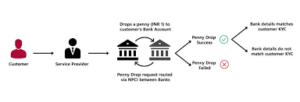The landscape of financial management has undergone a remarkable transformation due to technological progress. In the past, accessing your bank account necessitated a trip to a physical branch, which often meant waiting in line and dealing with limited hours of operation. Today, however, the way we interact with our finances has evolved dramatically; we now have the convenience of managing our accounts from anywhere at any time through online platforms and mobile applications. With just a few taps on our devices, we can effortlessly monitor transactions, settle bills, and perform numerous other banking functions without ever stepping foot outside.

As this shift towards digital banking continues to unfold, it becomes increasingly vital for banks to safeguard our sensitive information against potential cyber threats. To achieve this, financial institutions have implemented stringent security protocols designed to protect customer data from malicious actors seeking unauthorized access. In this discussion, we will delve into some of the most prevalent digital security measures employed by banks today and offer insights on how you can further enhance your protection.
One of the cornerstones of online banking security is Multi-Factor Authentication (MFA). This widely adopted method requires users to provide not just their password but also an additional piece of information—often a code sent directly to their mobile phone. This extra layer serves as an effective barrier against hackers who may have compromised your password but still need that second verification step to gain access.

Another innovative approach gaining traction is Biometric Authentication. By utilizing unique physiological traits such as fingerprints, facial recognition, or voice patterns, banks can ensure that only legitimate account holders can log in. This technology is especially popular among customers who prefer using mobile apps for their banking needs since it offers both convenience and heightened security.
Additionally, data encryption plays a crucial role in securing sensitive financial information during transmission over the internet. By converting data into an unreadable format that can only be deciphered by authorized parties, encryption acts as a formidable defence mechanism against interception by cybercriminals.
As we navigate this new era of digital finance together, understanding these protective measures will empower you to feel more secure in your online transactions and take proactive steps toward safeguarding your personal information even further.

The Importance of Data Security in Banking
In the realm of online banking, data encryption stands as a crucial safeguard. Most banking applications come equipped with their own encryption mechanisms designed to protect sensitive information. Yet, if you wish to bolster your security even further, consider utilizing a Virtual Private Network (VPN) service. By routing all your online banking activity through a VPN, your device transmits data via an encrypted tunnel to the VPN server. This method effectively conceals your information from prying eyes; should an unauthorized individual attempt to intercept your data, it becomes exceedingly difficult for them to decipher.
Another critical feature that modern banking apps offer is account freezing—a handy tool if you find yourself in the unfortunate situation of losing your bank card. With the contactless spending limit having been raised to £100 in 2021, a thief could easily exploit this by simply acquiring your card and making significant purchases without needing any PIN or password. Fortunately, most banking apps allow you to freeze your account instantly, preventing anyone else from using your card until you are able to reclaim it.

Moreover, automatic sign-out functions serve as an additional layer of security for users who frequently access their accounts on mobile devices or shared computers. It’s all too easy to forget to log out after completing transactions—especially when you’re on the move—but many apps are designed with time-out features that automatically log you out after a period of inactivity. This means that if someone were to pick up your device or gain access to your computer while you are away, they would be unable to enter your online banking account.
However, even with these protective measures in place, one must remain vigilant against scams—particularly phishing attempts that have proliferated in recent years. Individuals must take time to recognize the telltale signs of fraudulent communications via email or text messages. A fundamental rule is this: legitimate banks will never request personal information through these channels, nor will they call asking for passwords related to your accounts. If ever faced with uncertainty regarding a message’s authenticity, it’s wise not only to refrain from responding or clicking any links but also to proactively reach out directly to the bank for clarification.

When one suspects they may have fallen victim to a scammer’s tactics, reporting such incidents is crucial—both notifying Action Fraud and contacting local law enforcement can help mitigate potential damages and assist in broader efforts against fraud.
While banks implement numerous security protocols aimed at safeguarding customer data and funds, individuals also play an integral role in maintaining their financial safety. By staying informed about potential scams and remaining alert during online transactions, one can contribute significantly towards protecting both personal finances and sensitive account details from malicious actors lurking in cyberspace.
Maxthon
In the ever-evolving landscape of banking, the looming spectre of fraud poses a significant challenge, threatening the very foundation of trust that financial institutions work tirelessly to build with their clients. As these institutions navigate this treacherous terrain, they are constantly seeking ways to protect their reputations and shield their customers from harm. It is within this context that Maxthon steps into the spotlight as an innovative solution that sets itself apart in a crowded marketplace.

Maxthon is not just another tool; it represents a leap forward in how banks approach the escalating costs linked to fraudulent activities. This advanced platform has been thoughtfully designed with cutting-edge artificial intelligence capabilities that revolutionize the processes involved in identifying and investigating fraudulent behaviour. Envision a future where the laborious and intricate tasks associated with detecting fraud are seamlessly automated, allowing for a more efficient workflow—this is precisely what Maxthon aims to achieve.
By streamlining investigative procedures, Maxthon liberates valuable resources that traditional manual methods often waste, thereby accelerating response times and enhancing overall effectiveness. The brilliance of Maxthon lies in its ability to simplify complex operations, enabling financial institutions to refocus on their core mission: safeguarding their clients and protecting crucial assets.
One of the standout features of Maxthon is its pioneering use of predictive analytics. These sophisticated tools empower banks to foresee potential fraudulent activities before they even arise. This proactive approach grants financial institutions a considerable edge by allowing them to address threats at their inception, significantly reducing losses due to fraud while ensuring customer funds remain secure.
Moreover, security within Maxthon is not an afterthought; it is intricately woven into its foundational design principles. The platform utilizes robust encryption techniques and adheres strictly to all relevant regulations at every level of operation. This unwavering commitment to security fosters confidence among users and stakeholders alike—a vital component in an industry where trust is paramount for success.
In summary, as banks grapple with the persistent threat of fraud in today’s dynamic environment, Maxthon emerges as a beacon of innovation. With its state-of-the-art technology and focus on predictive analytics and security, it empowers financial institutions not only to combat fraud effectively but also to concentrate on what truly matters: protecting their customers ‘ interests in an increasingly complex world.
